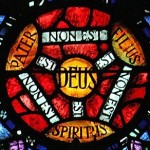We run our website the way we wished the whole internet worked: we provide high quality original content with no ads. We are funded solely by your direct support. Please consider supporting this project.

Repent! … From the Sin of Religion
People often think that being Christian is about “being religious,” but loving others in the way that Christ instructs us is about as far removed from religion as anything could be. Religion, as I use the term, is a system of beliefs and behaviors one embraces as a means of getting life—whether this be feeling close to God, one with the universe, or righteous before others.
While all religions, including the Christian religion, contain much wisdom and do much good in the world, they also can do much harm. The harm is not only in the vast amounts of blood they have spilled advancing their causes and defending the correctness of their positions. It is found in the fact that they may systematically prevent people from experiencing the love and life of God as a free gift flowing to and through them. So long as one is trying to achieve a relationship with God, he or she cannot receive a relationship with God by grace.
In this light, the religion of Christianity is the most tragic example of the harm religion sometimes causes. It is in some ways the most fundamental denial of the life and message Jesus came to bring. For the fallen idolatrous behavior of the Christian religion is carried out in the name of the One who came to set us free from the need for idolatrous behavior.
We who are the body of Christ need to repent, individually and collectively. We need to ask forgiveness from God, and from the world, for being religious. We have striven to be religious when we were called to be loving. We need to confess that we have sinned in the gravest fashion by frequently loving our vision of truth and ethics more than people, and even God himself.
To cite a few examples of our sins of religion, historically, and still today, we have not outrageously loved heretics. To the contrary, the church has often burned them alive. The white church has not outrageously loved blacks: Large segments of the American white church defended slavery and continue to support racist social structures. The white church has not outrageously loved Native Americans: In the name of Jesus it helped steal their land and extinguish their culture. The church as a whole has not outrageously loved Jews, Muslims, and other religious groups: We have rather frequently spoken evil of them and warred against them. And we have not outrageously loved large groups of targeted sinners whom we defined as outside our perimeters: prostitutes, gays, drug addicts, murderers, and others. Instead of standing in solidarity with these and all other sinners, we have eaten from the forbidden tree and constructed our own self-serving sin list to determine who’s “in” and who’s “out.” We have judged these people for whom Christ died and, rather than serve him, have often gone out of our way to make their lives miserable.
Our life is not found in our correct doctrine or in our piety, as important as these are. To get life from these things is religion. Our life is rather found in Jesus Christ, and in Jesus Christ alone. When we repent of our religion and commit to seeing God, ourselves, and every person we encounter only as he or she is revealed in Jesus Christ, and as we allow God’s Spirit to express this truth through our outrageous sacrificial love, the world will come to acknowledge that Jesus Christ is Lord, as Jesus himself promised.
—Adapted from Repenting of Religion, 225-228
Image by Hartmut Tobies
Category: General
Tags: Judgment, Living in Love, Love, Religion, Religious Idolatry, Repenting of Religion, Servant
Topics: Following Jesus
Related Reading

Why a “Christocentric” View of God is Inadequate: God’s Self-Portrait, Part 5
I’m currently working through a series of blogs that will flesh out the theology of the ReKnew Manifesto, and I’m starting with our picture of God, since it is the foundation of everything else. So far I’ve established that Jesus is the one true portrait of God (See: Part 1, Part 2, Part 3, Part 4).…

When Science Starts to Smell Like Religion
Most of you know that, here at ReKnew, we try to come against some of the popular antagonism between the church and science. We think it’s a shame when christians pit themselves against legitimate scientific inquiry and discovery based upon a questionable reading of scripture. ReKnew strives to be a place where good science is…

Does the Doctrine of the Trinity Matter?
Jesus reveals the greatest, most beautiful, and mysterious aspect of God when he, despite being himself God Incarnate, relates to God as his “Father” and refers to God as “the Holy Spirit.” There is, of course, only one God (1 Cor 8:6). Yet Jesus reveals that God somehow exists as Father, Son and Holy Spirit.…

Where Psychology and Theology Meet
Guest post by Ty Gibson The biblical narrative reveals that God bears our guilt—not merely in the penal sense that Reformed theology asserts—but in the sense that He bears our misconceptions of His character as we project our sins upon Him. To the degree that fallen human beings find it psychologically impossible to bear the…

God’s Favor, Not Vengeance
Jesus began his ministry with a brief sermon in his hometown synagogue. Quoting Isaiah 61, Jesus said, The Spirit of the Lord is on me, because he has anointed me to proclaim good news to the poor. He has sent me to proclaim freedom for the prisoners and recovery of sight for the blind, to…

God’s Love and Your Freedom
The most distinctive aspect of the revelation of God in Christ is Jesus’ demonstration that God relies on love to defeat his enemies and to accomplish his purposes. More than anything else, it was the perfect love of God revealed in the incarnation, ministry, and self-sacrificial death of Jesus that in principle defeated evil and…
